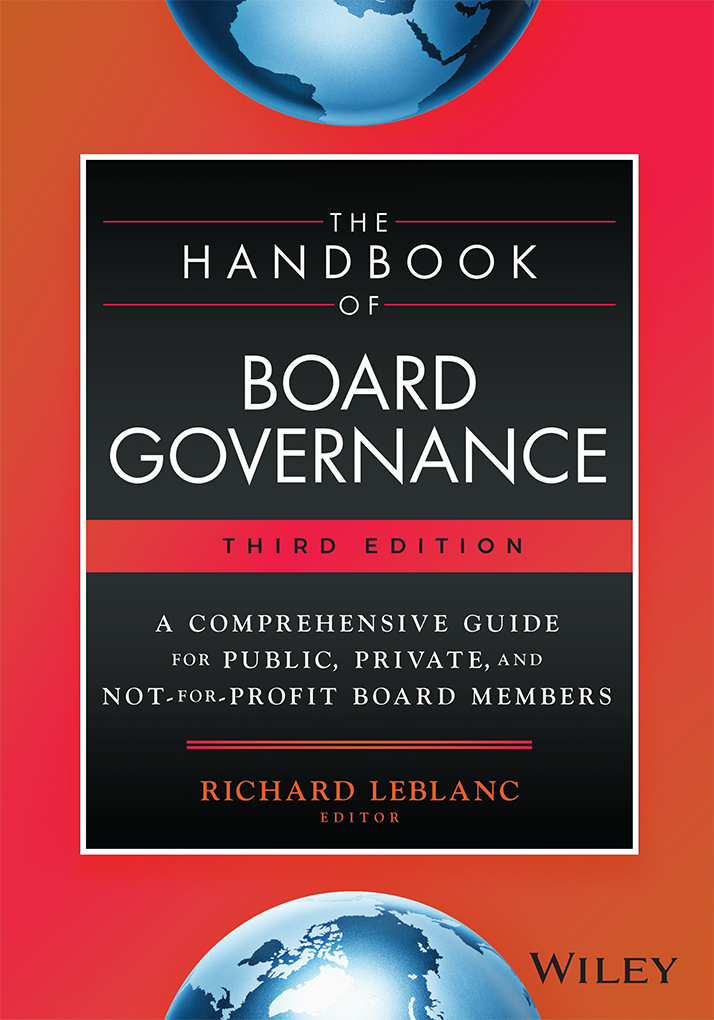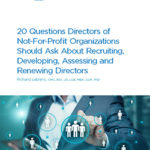Terence Corcoran launched a scathing attack against recent regulatory announcements by the Office of Superintendent of Financial Institutions (OSFI) and the Ontario Securities Commission (OSC) on assessing and interviewing directors, and strengthening gender diversity, respectively.
OSFI announced, in a draft advisory, that it intended to ask for curricula vitae of, and interview, certain directors and senior management, who include oversight functions. The Ontario Securities Commission, in a request for comment, has proposed disclosure amendments that include addressing term limits; the representation of women on boards and in executive officer appointments; and internal targets that companies could set to achieve greater gender diversity.
Mr. Corcoran calls OSFI’s announcement a “bureaucratization” of governance; contends that the OSC will “force” women directors onto boards in a “social policy agenda”; and calls an academic study “Junk Science,” while accusing the study’s authors of “manipulating” their data: a very serious charge. All these contentions warrant a counterpoint.
Currently, financial institution and public company directors are self-selected by themselves or, worse yet, management. Shareholders may not propose their choice of, or remove incumbent, directors. They press for this right, otherwise known as “proxy access,” (e.g., shareholders who own 3% of common shares for three years can propose up to 25% of a board’s directors in an uncontested election), but boards resist. Company management has challenged proxy access in court, and has won.
Therefore, there is no third party oversight or validation of director skills, qualifications and selection. This reality enables self-interest, entrenchment, recruitment on the basis of personal relationships, discrimination, and directors who do not possess requisite expertise and background.
My own research and work with boards suggests directors can and often are conflicted through gifts, donations, offices, vacations, jobs for acquaintances, prior friendships, and other perks that management gives them. I have observed and assessed bank directors who tell me they do not understand acronyms that are being discussed. One director, emblematic of many, told me, “we don’t understand derivatives.” I have witnessed directors: arrive unprepared for meetings; fall asleep at meetings; who have “not made a single contribution in years” (according to other directors); and who do not do “any of this” (proper risk management). In one instance, a female director was proposed to a largely male OSFI regulated board, and a male director remarked “she’s attractive … since she likes skiing and sailing, she’ll be a good board member.” In another, a director asked “You want us to appoint a lady to our board?” A board chair once told me “There are only twenty women in Canada who are board ready.” (The qualification to be a director is often minimal: over 18, not bankrupt, and not insane.)
I also regularly conduct reviews of significant companies where directors are lacking in relevant industry and risk expertise. This is not true of all boards.
In short, how directors are selected, and what their qualifications are, are largely shielded from scrutiny. Investors are left to rely on fuzzy short bios, and assertions that a proper recruitment process based solely on merit has occurred.
OSFI enacted significant changes to governance, requiring: boards to have directors with risk and financial industry expertise; an explicit risk appetite framework; and oversight functions (including internal audit) reporting directly to them.
I know of at least one bank, one utility, and one university (and these were the only three organizations I checked) where the Internal Audit function reports to the CEO or CFO, which is wrong.
Corporate governance involves a legacy of “independent” directors, opaque selection, and deficient reporting, assurance and internal controls. Interviews, CV checks, and greater disclosure, which shareholders should be doing, can put the heat on boards to clean much of this up. Regulators have shown internationally that they are prepared to conduct interviews and enact competency matrixes in the absence of shareholder oversight. If boards wish to forestall regulation, the answer is to improve their practices and disclosure consistent with best practice, which now includes diversification.
Indeed, Canada is late to this global board diversity movement. The majority of peer countries around the world have already enacted diversity legislation, in many cases in a much more intrusive approach than the balanced and proportionate approach the OSC is suggesting. Mr. Corcoran states the OSC is going to “force” companies to appoint more women. This in my view is not correct because companies with no or few women on their boards are free to describe why this is the case, and why this should continue.
This is not a bureaucratization of governance, but a prudent assurance of systemically important financial institutions. Interviews are wise because simple questions, such as “To whom do you report?” “How did you come to be selected?” and “What relationships do you have with directors or management?” address what CVs can hide.
Shareholders can tell when they meet with a director whether that director is “camera ready,” and OSFI will be able to as well. If a director is camera ready, and possesses all the requisite qualifications to be fit and proper, they should have nothing to worry about. Indeed, good directors should welcome the interview.
Lastly, Mr. Corcoran derides academic studies. This past summer, a primary drafter of guidelines that had a profound effect on governance and director selection in Canada remarked publicly, “We did virtually no research.” This is unfortunate because academics bring something to the table. They adopt an independent, evidence-based approach. I have numerous studies underscoring the positive effects women on boards have. There are studies suggesting CEOs do not make better directors; tenure beyond 9 years diminishes shareholder value; and busy boards with over-boarded directors result in diminished board oversight and performance. People should not be afraid of, or deride, academic studies. On the contrary, they should welcome and learn from them.
Academic studies should be more widely consulted, not less. My own LinkedIn group, Boards and Advisors, has almost 10,000 members, attesting to the benefits of academic, practitioner – and journalist – interaction.
Richard Leblanc is an Associate Professor, Law, Governance & Ethics, at York University. He also teaches corporate governance at Harvard University, and regularly advises boards and regulators. His views are his own. Disclosure: Professor Leblanc has advised, and has been retained by, OSFI and the OSC.
Posted by Richard Leblanc on Jan 25, 2014 at 4:01 pm in Governance of Financial Institutions, Women on Boards |












